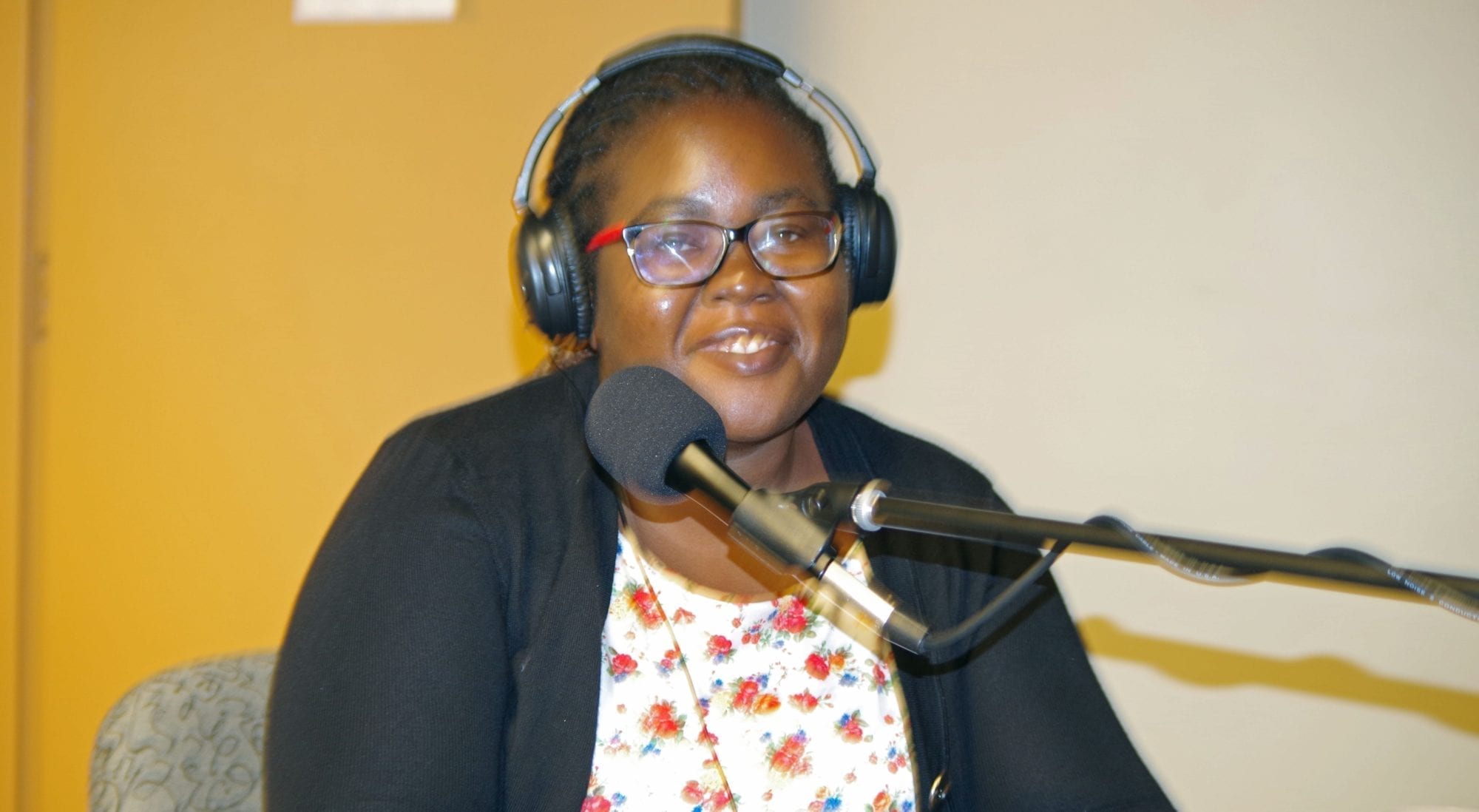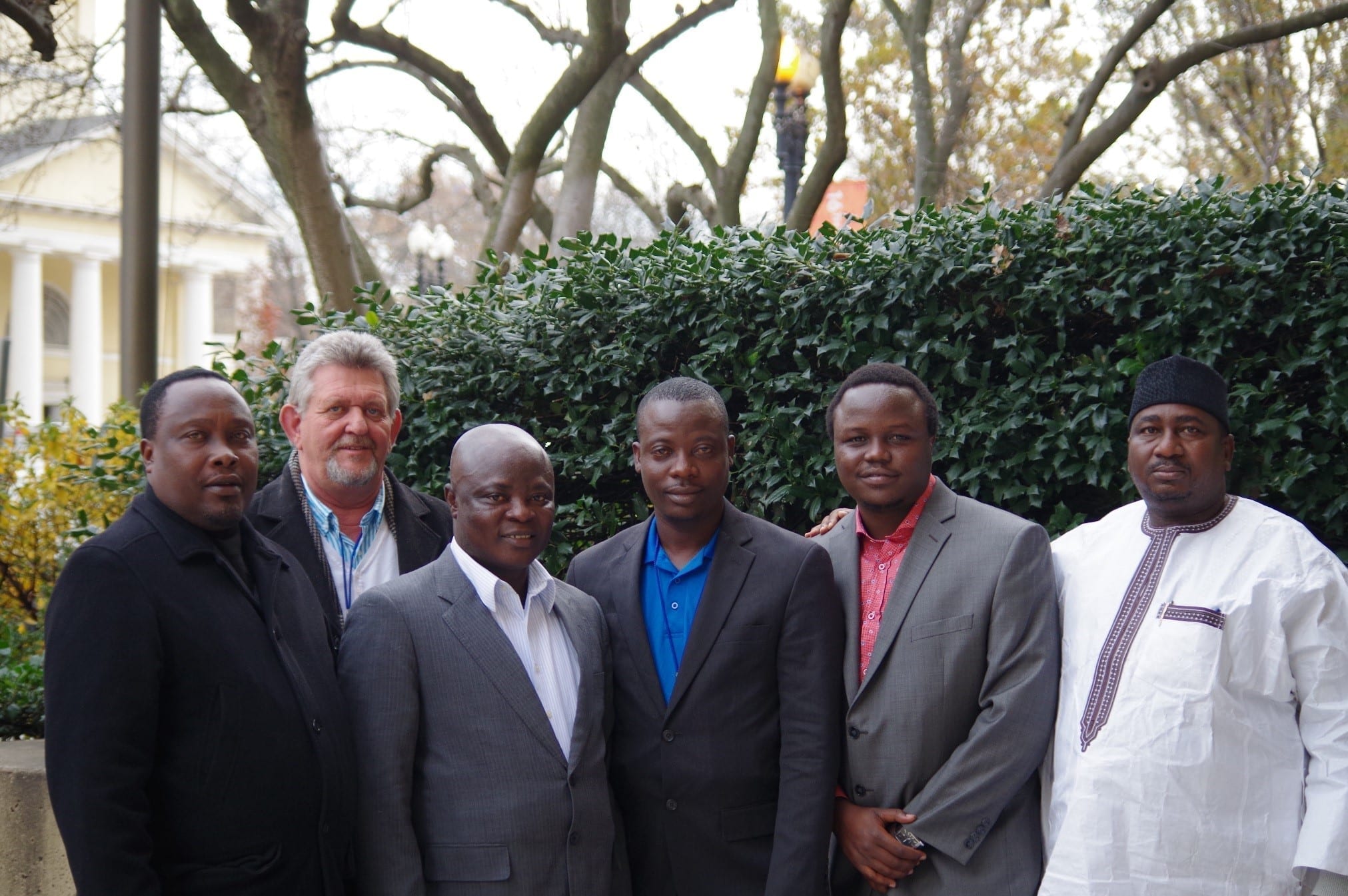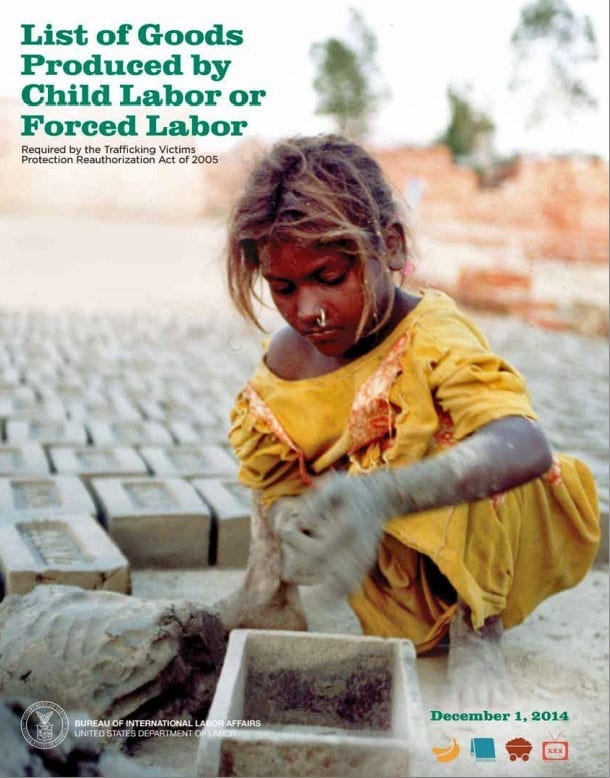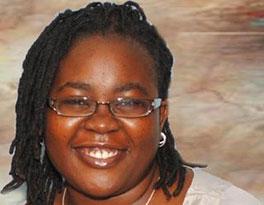
Mar 24, 2016
The East African Trade Union Federation (EATUC)—representing national trade union centers in Burundi, Kenya, Rwanda, Tanzania and Uganda—is conducting a regionwide campaign for passage of a social security portability bill through the East African Legislative Assembly (EALA). Passage of the bill into law will benefit citizens crossing borders within six member countries of the East African Community (EAC) for employment, by allowing them to carry their social security benefits with them.
“This bill can benefit millions,” said Caroline Mugalla, head of EATUC.
Many workers, including those laboring in the informal economy, are migrating across borders within the EAC for new job opportunities under the EAC Free Movement of Persons Protocol.
Most citizens of the region, 80 percent of whom labor in the informal economy for low wages, are not covered by pension schemes, but by creating a legal framework for regional cooperation on pensions, the EATUC-sponsored bill makes possible a harmonized system that can eventually cover all the region’s citizens, says Mugalla.
“We already see creative pension savings schemes in Kenya,” she said, where low-wage workers can save earnings through a mobile banking system accessed by cell phone, making contributions of any amount at intervals of their choice, and invest in an infrastructure government bond for as little as $28.
Free movement of labor benefits the employer through access to a larger labor pool, but can hurt workers economically when they leave benefits behind or must pay into the social security fund of the country to which they have moved (where they may not retire) and, a second time, into the fund of the country from which they emigrated if they wish to maintain eligibility.
EATUC—with assistance from national trade union centers in member countries—has built support for passage of the bill from employers in the region, as well as from some EALA legislators.
During the coming months, EATUC will reach out to union members, citizens of the region, community groups and others to build popular support for passage of the social security portability bill through EALA later this year.
“We will succeed,” said Mugalla. “The bill is supported by 2.8 million union members and more than 800 employers in East Africa (in the East African Employers Organization).”
Passage of the bill—which will create a legislative framework for portable social security benefits within the region—will potentially impact millions of working people because legislation passed by EALA is binding on all member countries.
Up to 80 percent of workers across the region labor in the informal economy, many as domestic workers, street vendors and taxi drivers.
Members of the EAC include Burundi, Kenya, Rwanda, Tanzania, Uganda and, with the addition of South Sudan this month, has a population of 162 million people.

Dec 10, 2015
Addressing unemployment and underemployment, especially for young workers, is the most pressing issue for trade unions across Africa, according to participants in an African Labor Leaders Exchange Program sponsored by the Solidarity Center.
Speaking at a December 9 panel discussion at the AFL-CIO in Washington, D.C., six union leaders from Kenya, Liberia, Nigeria and South Africa discussed the challenges in securing economic prosperity for working people—and their strategies for empowering workers in the formal and informal economies.
“What faces us is high levels of unemployment, poverty,” said Edward de Klerk, deputy general secretary of South Africa’s United National Transport Union (UNTU).
“Unemployment is an African issue,” said Philip Kwoba, director of Youth Organizing with the Central Organization of Trade Unions (COTU) in Kenya. Unions in Kenya are reaching out to informal economy workers, which include many young workers, helping them form worker savings associations as a step toward unionization and gaining bargaining rights. “We are allocating resources to help,” said Kwoba.
Members of the panel, moderated by Solidarity Center Regional Program Director for Africa Imani Countess, said poverty also is fueled by low wages. “Wage inequality is this battle still we have got,” said de Klerk. In Nigeria, unions are tackling wage issues by addressing government policies that reduce the pay of public-employees, including teachers, said Muhammed Nasir Idris, National Treasurer Nigeria Union of Teachers (NUT).
Lack of employment opportunity and poverty in Liberia puts youth at risk of labor trafficking within the country’s borders, said Liberia Labor Congress (LLC) General Secretary David Sackoh.
Sackoh said labor recruiters take children from parents in their villages, promising the children will go to school in the city. Instead, the children are used in forced labor. “Even though our research shows (the children) want to return,” they are unable to do so for seven to 10 years,” he said.
Sackoh pointed to the Liberian trade union movement’s tremendous victory in eradicating child labor at the Firestone Natural Rubber Liberia plantation, and said the union movement now is working to address the issue at the seven other plantations across the country.
During questions with the audience, which included a packed crowd of union activists, policy experts and international experts, union leaders also discussed drawing more women into trade union leadership.
“Getting women elected to high offices is now on the union agenda,” said Boniface Kavuvi, general secretary of the Kenya Union of Commercial, Food and Allied Workers (KUCFAW). Kavuvi pointed to domestic workers in Kenya, represented by KUDHEIHA, as an example of dynamic organizing and strong leadership by women in Kenya. “They have done a tremendous job,” he said.
In Liberia, unions are pushing for 30 percent representation by women in union leadership, mirroring the country’s effort to increase women’s representation in the national legislature, said Isaac Grant, LLC organizing coordinator.
The six union leaders traveled to the United States for a South–South labor leaders’ exchange in which African labor leaders met with community and trade union organizers across the southern United States. The Solidarity Center worked with the U.S.-based labor education program, the National Labor Leadership Initiative (NLLI), to facilitate the exchange, sponsored by the U.S. Department of State’s Bureau of Educational and Cultural Affairs.

Dec 3, 2014
Cotton production involves the most child labor and forced labor in the world, according to the 2014 “List of Goods Produced by Child Labor or Forced Labor” by the U.S. Labor Department’s Bureau of International Labor Affairs.
Overall, 126 goods are produced annually by child labor and 55 goods produced through forced labor. Most of the goods, like cotton, are found in common items like T-shirts or are among popular foods, such as melons and rice.
The sixth annual report, released this week, added 11 goods produced with children’s labor: garments from Bangladesh; cotton and sugarcane from India; vanilla from Madagascar; fish from Kenya and Yemen; alcoholic beverages, meat, textiles and timber from Cambodia; and palm oil from Malaysia. Electronics from Malaysia made the list for being produced with forced labor.
Uzbekistan, listed among countries using forced labor, including children, for cotton production, routinely requires teachers to leave classrooms and work in the country’s annual cotton harvest, according to a report the Uzbek-German Forum issued last month.
The lengthy list of goods produced with child labor and forced labor includes garments, fish coffee, shrimp and other shellfish, tea, corn, tobacco and peanuts.
See the full list.

Sep 24, 2014
When President Obama spoke yesterday at the 2014 Clinton Global Initiative about the value of civil society and the necessity of developing young civil society leaders, the first person he recognized as contributing to the development of his community was Solidarity Center fellow and Kenya social justice activist Walid Ahmed Ali.
Commending him for his work creating jobs at the Kenya-Somali border for unemployed youth, Obama said Ali told him he “strives not just for the idea of democracy,” but “to cement the practice of democracy.
“We thank you Walid for your extraordinary efforts and we stand with you,” the President said.
Ali has been in the United States for the past four months, where he spent the first six weeks at the University of California-Berkeley on a Mandela Washington Fellowship through the Young African Leaders Initiative. He then won an internship through IREX, enabling him to work for the past two months at the Solidarity Center.
Ali, who founded the Lamu Youth Alliance, offers jobless young workers counseling, business classes and small plots of farm land to support themselves in their communities in and around Lamu.
Just off Kenya’s eastern coast, the Lamu archipelago is an environmental oasis where farmers and fishers maintain the livelihoods that have supported their families for generations. Yet a government initiative to turn the area into a massive transportation hub while bringing in tens of thousands of overseas workers to build and operate it, threatens to displace Lamu residents, wreak havoc with the environment and damage the cultural heritage of Lamu Old Town, a World Heritage site UNESCO describes as “the oldest and best-preserved Swahili settlement in East Africa.”
“The indigenous community was evicted for the project and there was no compensation, no training for other jobs,” Ali says. The Lamu Youth Alliance joined the Save Lamu network, a coalition working to develop a bio-cultural community protocol (BCP) to document community practices, rights over communally managed lands and traditional knowledge.
Ali, 29, returns Saturday to Lamu, where he will continue his efforts to push for job creation, especially for the country’s young workers, the vast majority of whom are not employed in the formal economy. Unemployment in Kenya stands at 40 percent, and 70 percent of people unemployed are young workers between the ages of 15 and 35.
Yet despite the country’s dire need for jobs, Ali says half of the 1.5 million workers who will be employed on the Lamu Port Southern Sudan Ethiopia Transport corridor project (LAPSSET) are expected to come from China. The project, slated to become Kenya’s second largest transportation hub, did not go through a procurement process, Ali says, and the wages for the project’s workers do not meet the country’s minimum wage laws.
“I am not against the project, but I want the project to be done according to protocol,” he says.
Ali, who ran for public office last year in his local ward—coming in second among 12 candidates despite being significantly outspent by the winner—will continue working toward his bachelor’s degree in development at the Technical University of Mombasa in Kenya, where he attends classes at night. During the days, he plans to carry on his work with youth by empowering them with leadership skills, increasing their understanding of sustainable development and promoting their rights with the goal of bringing positive change to Kenya.
“My concern is to promote social rights and justice and also gender equality,” he says. “I want to be a good leader with a very strong potential for assisting my community.”

Sep 12, 2014
Up to 80 percent of workers across Africa labor in the informal economy, many as street vendors, taxi drivers and domestic workers. With few legal rights, most informal-sector workers make low wages and have no health care or other social protections.
Because women comprise the vast majority of workers in the informal economy, they are integral to improving wages and working conditions for all informal workers. Indeed, says Caroline Mugalla, executive secretary of the East Africa Trade Union Confederation (EATUC): “The key to development in Africa is empowering women.”
Mugalla traveled to Washington, D.C., in August, where she and nearly 40 African trade union leaders met to ensure participants in the high-level U.S.-Africa Summit included “decent work” on their agenda. Although “Africa rising” has become a popular catchphrase for the continent’s economic momentum, only the top 1 percent are benefiting. Most Africans are unable to secure decent work—which includes good wages, safe working conditions and the freedom to form unions and collectively bargain.
For many unions, the first step to empowering women workers is addressing their own power structures, a process Mugalla led for several years within the EATUC, a regional confederation that includes labor federations in Burundi, Kenya, Rwanda, Somalia, Tanzania, Uganda and Zanzibar. EATUC’s constitution was “silent on the issue of gender,” Mugalla said, so in 2009, she and others began drafting language to ensure gender equality became a key part of it.
Over the next three years, union leaders hosted regional committee meetings with women to hear their concerns and develop recommendations for the EATUC governing body. The International Labor Organization (ILO) and Solidarity Center held leadership trainings for women and assisted union leaders in crafting new language for the constitution. The union women also held the all-male general secretaries accountable for approving it, says Mugalla.
Now with passage of the new constitution, Mugalla says “women need to be trained at the shop floor so they can become leaders—stewards, regional officers, national officers.”
In reaching out to workers in the informal economy, unions in East Africa provide an opportunity for women to share in the region’s prosperity. Tanzania unions have organized female street vendors who sell beads, sandals, wood carvings and other crafts, providing them with valuable information on the market price for their goods. “Women make up the majority in East Africa, make up the majority of people living below the poverty line,” says Mugalla. “A woman who is economically empowered can made decisions on her own.”
As a collective trade union voice in East Africa, EATUC is pressing for strong worker protections in trade agreements such as the African Growth and Opportunity Act (AGOA). AGOA, which gives eligible sub-Saharan countries duty-free access to the U.S. market for a variety of products, is up for re-authorization in 2015. In the 15 years AGOA has been in effect, it has increased exports from sub-Saharan Africa, but by focusing mostly on tariff reductions, it has not spurred broader development or fostered a robust and equitable economic system, Mugalla says.
AGOA covers products made in the textile sector, which is nearly entirely composed of women workers. The EATUC is working to ensure AGOA and other such agreements do not increase the number of low-skilled jobs but provide women and young workers “employment that gives them the opportunity to access social services, job security,” says Mugalla.
Empowering women economically, fundamental to advancing progress across Africa, can only happen when gender equality is recognized across the board. Or as Mugalla says:
“The day that gender becomes a man’s issue is the day we have made a lot of progress.”





